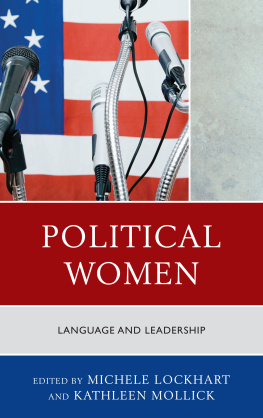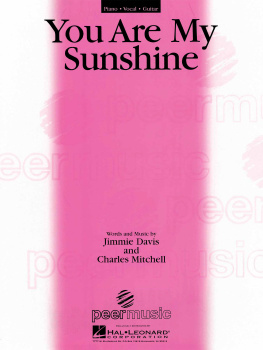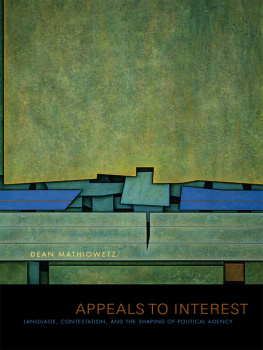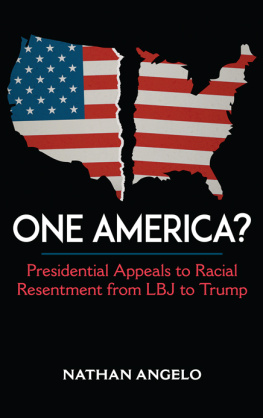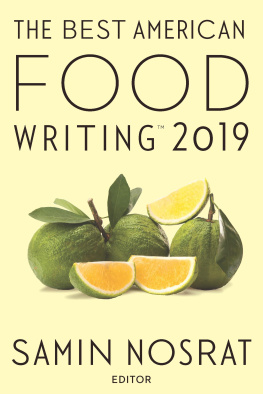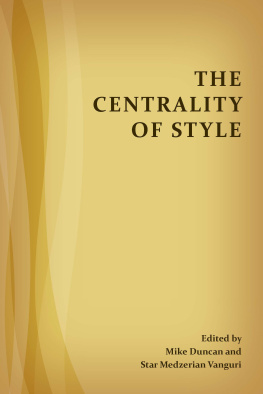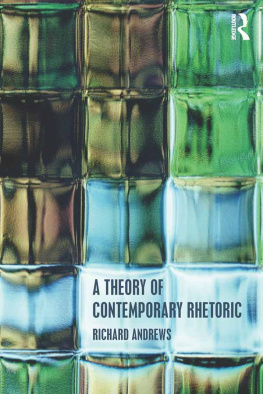M. Jimmie Killingsworth - Appeals in Modern Rhetoric: An Ordinary Language Approach
Here you can read online M. Jimmie Killingsworth - Appeals in Modern Rhetoric: An Ordinary Language Approach full text of the book (entire story) in english for free. Download pdf and epub, get meaning, cover and reviews about this ebook. year: 2005, publisher: Southern Illinois University, genre: Science. Description of the work, (preface) as well as reviews are available. Best literature library LitArk.com created for fans of good reading and offers a wide selection of genres:
Romance novel
Science fiction
Adventure
Detective
Science
History
Home and family
Prose
Art
Politics
Computer
Non-fiction
Religion
Business
Children
Humor
Choose a favorite category and find really read worthwhile books. Enjoy immersion in the world of imagination, feel the emotions of the characters or learn something new for yourself, make an fascinating discovery.

- Book:Appeals in Modern Rhetoric: An Ordinary Language Approach
- Author:
- Publisher:Southern Illinois University
- Genre:
- Year:2005
- Rating:5 / 5
- Favourites:Add to favourites
- Your mark:
- 100
- 1
- 2
- 3
- 4
- 5
Appeals in Modern Rhetoric: An Ordinary Language Approach: summary, description and annotation
We offer to read an annotation, description, summary or preface (depends on what the author of the book "Appeals in Modern Rhetoric: An Ordinary Language Approach" wrote himself). If you haven't found the necessary information about the book — write in the comments, we will try to find it.
Appeals in Modern Rhetoric: An Ordinary Language Approach — read online for free the complete book (whole text) full work
Below is the text of the book, divided by pages. System saving the place of the last page read, allows you to conveniently read the book "Appeals in Modern Rhetoric: An Ordinary Language Approach" online for free, without having to search again every time where you left off. Put a bookmark, and you can go to the page where you finished reading at any time.
Font size:
Interval:
Bookmark:
M. Jimmie Killingsworth
This book arises like all communications out of a particular situation. I found myself in a fix (as we say in the South) as if I were walking in the woods and came to the end of the path before I had gone a hundred steps, or found so many paths that I couldn't decide among them. Every path I tried took me some place I didn't want to go a dead end, a crowded town, a stinking landfill.
I kept trying to teach a course in modern rhetoric to undergraduate students and finding no text they could understand and easily apply to their lives and work. I could barely coerce my graduate students to read the likes of Kenneth Burke and Wayne Booth, authors whom I dearly love but whose books are so drenched in tradition and erudition that you need a PhD to read them. There were plenty of good books that introduced ancient rhetoric, in the mold of Edward P.J. Corbett's Classical Rhetoric for the Modern Student, but nothing with a title like "Modern Rhetoric for the Modern Student". Judging from the textbooks available, it would be easy to think that no work had been done in rhetoric since the time of St. Augustine or that contemporary students ought to be able easily to comprehend the work written more recently. My experience said no to both suggestions.
What I needed, then, was a place to start. Convinced that rhetoric remains relevant in our times, I came up with an idea that would allow me to introduce the subject in ordinary language for people with no background in the tradition and no patience for reading tomes like Bizzell and Hezberg's The Rhetorical Tradition, which after a couple of thousand pages only gets the reader to the edge of the woods anyway.
The idea I landed upon was to introduce the topic through the concept of the appeal. Everybody knows what appeal means in ordinary language, and we can build on that common knowledge and get quickly into the deep woods of rhetorical theory and practice. In an earlier work, I had defined rhetorical appeals as "efforts to overcome oppositions and divisions either by forming new solidarities, by reinforcing old ones, or by revealing distances and likenesses in order to transform attitudinal conflicts into [communal forms of] action" (Killingsworth and Palmer 17). I felt I could do better than that, so I went to the library and looked up the word in the indexes of whole shelves of books on rhetoric to see what others had to say. To my wonder, I found no listings for "appeals, rhetoric" in the indexes. After an initial moment of panic and then one of glee for scholars love to find a gap that needs filling I had to conclude that the rhetorical appeal is a concept whose meaning is rarely explained in the scholarly literature.
No doubt for many authors in the field, the meaning of appeal is tacitly understood, so there is no need to explain. But this kind of background knowledge is lacking for beginners in the field. And my further reading revealed that there is some chance that, even for specialists, who may have assumed too quickly that Aristotle had the last word on appeals, the concept has been "undertheorized", as we say in academic jargon these days. On that chance, I decided to try to write a book for students and their teachers, with the idea of helping novices in rhetoric to use their everyday understanding of what appeal means as an entry point into the study of rhetoric and at the same time urging scholars and teachers in the field to refine and articulate their own understanding of this central concept.
So here we are, standing at the edge of the woods with a modest path-opening device the idea of the appeal. It has two significant common meanings. In the first definition, an appeal is a kind of attraction. When you find something appealing a book or a movie or dinner or person you say "that one has appeal" or "that one appeals to me". In the second definition, an appeal is a way of approaching an audience. In this sense, you "appeal to a higher authority", such as God or Nature or the Supreme Court. An authority may appeal to evidence, values, experience, or any number of cultural constructs - time, place, gender, or race, for example.
The two definitions are related in some special ways explored in chapter 1. The main idea is that in appealing to something or somebody, an author must create an appealing text. In the terms that come down to us from Cicero, we must please the members of our audience in order to teach or move them. Rhetoric is all about bringing these three purposes to please (delectare), to teach (docere), and to move (movere) into harmony (Barilli ix).
The ten chapters presented here were originally given as weekly lectures in my courses on modern rhetoric. I have tried to retain something of the flavor of the lectures and the quality of the original aim: to provide an entry into rhetoric by way of this double-edged concept of the appeal, pointing out related paths along the way and sources in the rhetorical tradition, and showing how a model of appeals can be used to analyze and create texts. I also try to make the explanations comprehensible by paying attention to the two things that, according to my students, make specialized academic prose most difficult for them: "jargon" and "name-dropping". I use terms like appeal and other instances of ordinary language whenever I can and take time to explain specialized terms whenever I need to cross intersections with the rhetorical tradition and its sometimes confounding language. As for the "name-dropping" our habit of citing hundreds of authorities and exhausting every possibility of reference I experiment here with keeping references to a minimum in the text and using brief citations and bibliography to cover at least the majority of my debts. I doubt that my colleagues in rhetoric will appreciate this approach, but I'm sticking with it to keep the book accessible to the widest possible audience. My dearest hope is that scholars in rhetorical studies will also find the book easy to read and respond to. If they feel that the work remains too superficial to make a strong contribution to rhetorical theory, perhaps they will at least be able to recommend it to their students as a point of departure in modern rhetorical studies.
I feel confident at least in claiming that the approach offered here is not only easier to comprehend but also goes deeper into rhetoric than the usual textbook on argument, which typically chooses material too advanced for most contemporary students and then in an effort to make it usable, dumbs it down to the point of inanity. As an alternative, I offer an ordinary-language approach to rhetoric, the goal of which conforms to the goal of rhetoric since ancient times: to understand and create informal arguments for use in public forums among nonspecialists.
In choosing examples to illustrate my position, I reveal much about who I am and where I'm coming from. I show that I'm a scholar in American rhetoric, literature, and culture with special interests in the discourse of environmentalism, lyric poetry, science fiction, and social movements. I also appear as a person of a particular generation, somebody who came of age in the second half of the twentieth century, graduated from college in 1974, and took his first professional job in 1980. My examples arise from my scholarly and personal experience, and though I try to appeal to a range of generations, many sample texts are likely to seem dated to students and younger readers. In my defense, I can only say that I recall how embarrassing it always seemed when my own teachers tried to keep their examples up to date, referring to what they thought were our favorite songs, movies, and slang terms. We always said they were "trying too hard to be cool". They never quite pulled it off.
Font size:
Interval:
Bookmark:
Similar books «Appeals in Modern Rhetoric: An Ordinary Language Approach»
Look at similar books to Appeals in Modern Rhetoric: An Ordinary Language Approach. We have selected literature similar in name and meaning in the hope of providing readers with more options to find new, interesting, not yet read works.
Discussion, reviews of the book Appeals in Modern Rhetoric: An Ordinary Language Approach and just readers' own opinions. Leave your comments, write what you think about the work, its meaning or the main characters. Specify what exactly you liked and what you didn't like, and why you think so.

